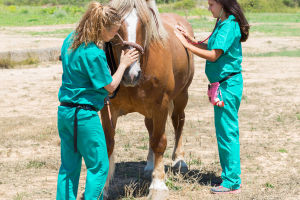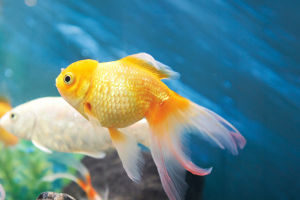If you've ever walked through a eucalyptus forest and caught a whiff of something sharp, minty, and almost sweet, you're smelling the natural oils that define Australia's iconic landscape.
But here's a curious twist: if you get close enough to a wild koala, they often smell just like the trees they live in.
That eucalyptus scent isn't just a byproduct of where they live—it's a direct result of their diet, and it plays a surprising role in their behavior, health, and survival.
The Scent Comes from Inside
Koalas feed almost exclusively on eucalyptus leaves, which are rich in essential oils. These oils contain powerful compounds like cineole (also known as eucalyptol), which give eucalyptus its intense smell. While these oils are bad to most animals, koalas have evolved a highly specialized digestive system that not only breaks down the toxins but also absorbs parts of the oil into their bloodstream and body tissues.
Over time, this internalized oil ends up on their fur through sweat and oil glands, giving them that distinct herbal scent. It's not like they're rolling around in the leaves—it's literally coming from within.
More Than Just a Scent: It's a Signal
That smell doesn't just linger—it communicates.
1. Male Koalas Use Scent to Mark Territory
Adult males have a special scent gland on their chest that produces a dark, sticky substance. This patch releases a strong, musky version of the eucalyptus scent, especially during breeding season. Males rub it on trees to mark territory and attract females. According to behavioral ecologist Dr. Bill Ellis, scent plays a critical role in how koalas interact and compete.
2. Smell as a Communication Tool
Koalas have an extraordinary sense of smell, and they use it to distinguish between individuals, detect reproductive status, and evaluate the chemical makeup of leaves. When koalas sniff each other—or even the trees—they're gathering information encoded in scent, including dominance, health, and gender.
So yes, koalas "talk" to each other, just not the way we do. Their eucalyptus aroma is one way they share their presence without making a sound.
What It Means for Their Health
A diet of eucalyptus might smell lovely, but it's not exactly a wellness smoothie.
1. Nutritional Challenge
Eucalyptus leaves are low in nutrients and high in fibrous material, which means koalas have to eat a lot and sleep even more—up to 20 hours a day—to conserve energy. Their liver and gut microbes work overtime to process the toxins and extract the little protein and moisture they can.
Over time, this narrow diet can make them vulnerable. Environmental changes that affect eucalyptus quality—like drought, bushfires, or pollution—can lead to digestive stress and malnutrition.
2. Scent and Stress
Interestingly, the strength or change in a koala's scent can indicate stress or illness. In captivity and rescue centers, veterinarians sometimes notice that sick koalas lose their usual scent, or develop strange-smelling fur. This gives caregivers a non-invasive clue into an animal's condition.
It Even Influences Their Behavior
You might assume all eucalyptus trees are the same to a koala, but that's not the case.
Koalas are picky eaters. Out of the 600+ eucalyptus species, they prefer only a few dozen, and even then, they'll sniff leaves carefully before choosing which to eat. Why? Because oil content varies not just between species, but between individual trees and seasons. Too much oil = toxic. Just enough = dinner.
Their reliance on scent helps them find leaves with the right balance of nutrition and safety. It also affects how they move through forests—seeking out their favorite trees and avoiding the rest.
Next time you think of koalas as sleepy, lazy creatures, remember: their eucalyptus scent is more than just a side effect. It's tied to their unique biology, their behavior, and their survival. What smells like spa oil to us is a vital tool in the life of a wild koala.
If you had to rely on just one food your whole life—something that even affects how you smell—what would it be? Hopefully not eucalyptus. But for koalas, that signature scent is a badge of adaptation. Would you want to carry the scent of your food wherever you go? That's the price of survival in the trees.


